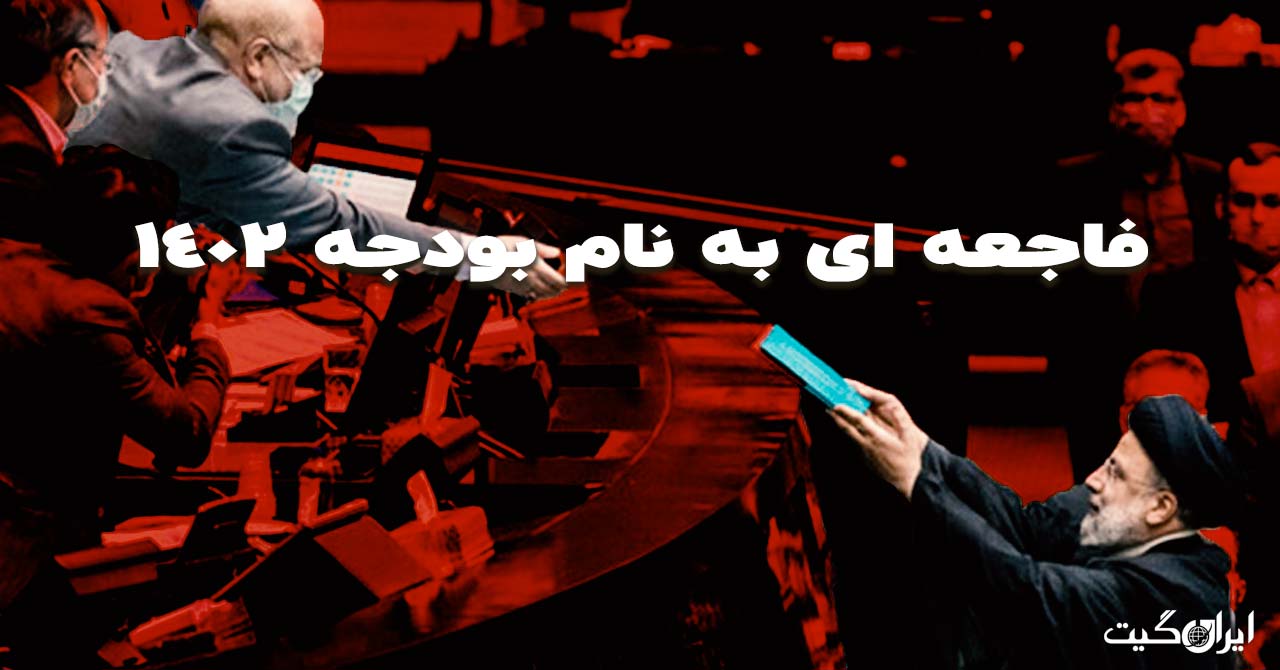A Disaster Called the 1402 Budget
When the Government’s Income and Expenditure Don’t Align
Last week, after much controversy, Ebrahim Raisi finally submitted the 1402 budget bill to the parliament. This budget was not supposed to be accepted until after the presentation of the seventh development plan by the parliament. However, it seems Mohammad Bagher Ghalibaf was forced to retreat from his stance of not accepting the budget and accepted the bill from the president of the thirteenth government with a cold smile.
However, experts believe that contrary to the government’s claims, the budget bill submitted to the parliament could further strengthen the likelihood of the collapse of Iran’s economy.
The 1402 budget bill was submitted to the parliament under conditions where the point-to-point inflation rate in December 1401 had exceeded 485 percent, and many experts consider this rate as a benchmark for evaluating the government’s proposed budget.
Considering this factor, it must be said that the Raisi administration has drafted the 1402 budget bill under the severe inflationary conditions of the country in a completely expansionary manner. In other words, the concoction of the thirteenth government’s planning organization could lead to a disaster even greater than what is currently unfolding in the Iranian economy.
Raisi’s Expansionary Budget and Indifference
The unreasonable and strange increase in government expenses in the proposed 1402 budget has become a cause for concern among experts and economists. Comparing the 1401 budget with the proposed 1402 budget indicates a growth of more than 42 percent, exceeding 2,000 trillion tomans. This fact suggests to the audience that Raisi’s planning organization has budgeted in such a way that we should expect inflation rates of over 55 to 60 percent in the early months of next year.
What is the Share of Employee Salaries?
The 42 percent increase in government expenses for 1402 has sparked many reactions. However, interestingly, the increase in government employee salaries for the next year has only been set at 20 percent. In other words, the government has decided to increase employee salaries by half of the average increase in its expenses for 1402.
Therefore, it can be said that unlike last year, the government cannot blame next year’s inflation on employees and minimum wage earners, because, for instance, the budget for some institutions has increased by more than 60 to 65 percent. In other words, to find the root of the 1402 inflation, one must look for a source other than employee salaries and minimum wages.
1402 Also Smells of Oil
The 1402 budget bill has been prepared under conditions where the daily oil export volume is considered to be about 14 million barrels of oil and its equivalent in gas. This is while the thirteenth government’s planning and budget organization has also predicted the price of oil for 1402 to be 85 dollars. However, many experts believe this price is very optimistic.
Therefore, it can be said that the government’s oil revenues for next year are predicted to be 604 trillion tomans. In other words, according to the planning organization’s expectations, oil revenues in 1402 will have a 304 percent share of the general resources.
In fact, it can be said that the government has set the next year’s budget to be more oil-dependent than ever, because this figure is also much higher than the average of the last decade, and considering the sanctions and increased international pressures, achieving it is almost impossible.
This is while oil revenues in the first six months of the current year have only realized 56 percent of the 1401 budget expectations, and the government has practically been unable to export oil. Nevertheless, the planning organization has predicted that next year the government will not only have more income from this source but can also increase this amount by 30 percent.
The Parliament Will Make It Worse
Experience has shown that budget bills that the government has always submitted to the parliament have been altered by representatives and especially the budget reconciliation commission. Hassan Rouhani also said about the 1400 budget bill that the 400 trillion toman budget deficit left by the government was due to the interventions of representatives in the budget bill.
Of course, these interventions have been ongoing in various parliamentary terms, but the eleventh parliament has proven to be more prominent than its predecessors in this regard. Therefore, it is expected that the 1402 budget will be more inflationary than what economists have already labeled as disastrous.
In this context, an article titled ‘1402 Budget: Raisi’s New Masterpiece’ has been published in Iran Gate. Also, related to Iran’s economic situation, an article titled ‘In 1402, We Should Expect Hyperinflation’ has been published.

